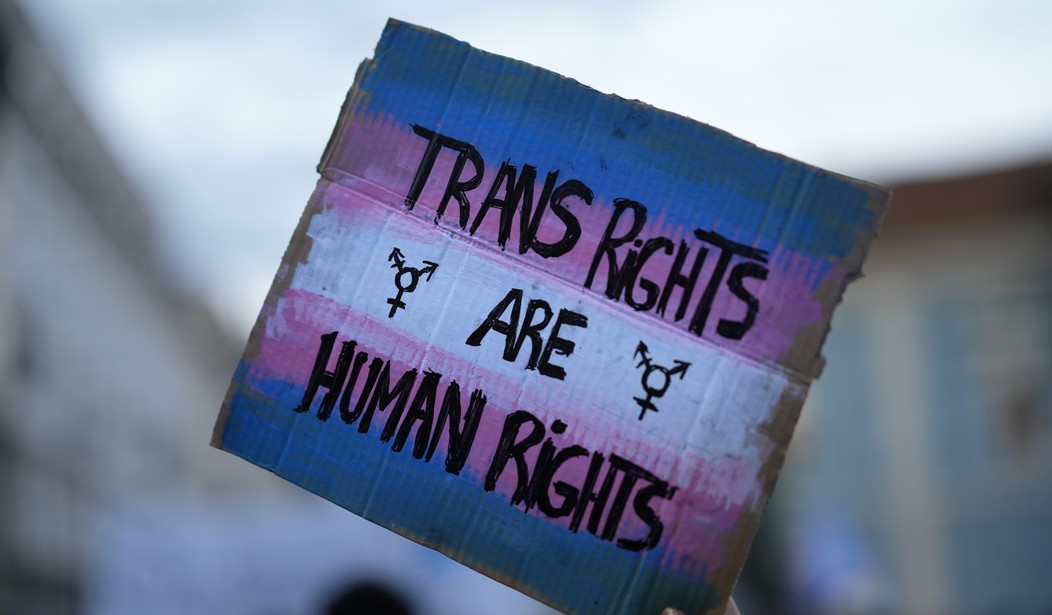A study published this month found that the majority of transgender teenagers who underwent puberty suppression treatment went on to continue other transgender care, such as hormone therapy treatment.
The study compiled data from patients who visited a gender clinic, Amsterdam UMC, in the Netherlands, for gender dysphoria, a disorder where a person feels like their gender does not align with their biological sex.
The study found that 98 percent of people who began “gender-affirming” treatments as teenagers continued to do so as they got older (via NPR):
The paper's data included people who started medical treatment in adolescence with puberty blockers before the age of 18 for a minimum duration of three months, before adding gender-affirming hormones. Researchers then linked that data to a nationwide prescription registry in the Netherlands to look for a prescription for gender-affirming hormones at follow-up.
Marianna van der Loos, the paper’s lead author, told NPR that “it’s an important finding because we see that most of these people continue to use gender-affirming hormones.”
The study included 720 people, 31 percent who were “assigned male at birth” and 69 percent who were “assigned female at birth.”
For the 2 percent of people in the study who did not continue treatment, researchers did not identify the reason why.
Chloe Cole, a young woman who began transitioning as a teen and later reversed course, slammed the study on Twitter.
“I thought the argument was that it was just a ‘pause’ so that kids can make the decision once they’re older?” she said of puberty blockers.
Recommended
“[Puberty] Blockers are a harmful gateway drug to becoming patient for life before experiencing adulthood,” she added.
I thought the argument was that it was just a “pause” so that kids can make the decision once they’re older? Blockers are a harmful gateway drug to becoming patient for life before experiencing adulthood. https://t.co/djMDSQUwmZ
— Chloe Cole ⭐️ (@ChoooCole) October 27, 2022
This month, England’s National Health Service published a report that said that most children who think they are “transgender” are going through a “transient phase.”
“The clinical approach has to be mindful of the risks of an inappropriate gender transition and the difficulties that the child may experience in returning to the original gender role upon entering puberty if the gender incongruence does not persist into adolescence,” the report stated.
The report added that “social transitioning” should not be seen as a “neutral act” due to the impact it makes on a child’s psychology. Social transitioning includes going by a different name, using “preferred pronouns” and dressing like the opposite gender. In some cases, they will use bathrooms that align with their gender identity instead of their biological sex.
“Social transition should only be considered where the approach is necessary for the alleviation of, or prevention of, clinically significant distress or significant impairment in social functioning and the young person is able to fully comprehend the implications of affirming a social transition,” the draft read, according to Daily Mail.
This year, the NHS announced that it would shut down its only dedicated gender identity clinic for children, Tavistock and Portman NHS Foundation Trust in response to an expert ereview that “raised concerns over a lack of consensus about how the health service should assess, diagnose and treat young people seeking gender services,” Reuters noted.
Daily Mail reported that at least 15 children under the age of 4 years old were referred to the Tavistock clinic to undergo “gender-affirming” care, which can include hormone therapy treatments, puberty blockers and sex reassignment surgery. In total, over 5,000 children were referred to the controversial clinic in the past two years. Only half of the referrals were for children aged 15-plus.
























Join the conversation as a VIP Member